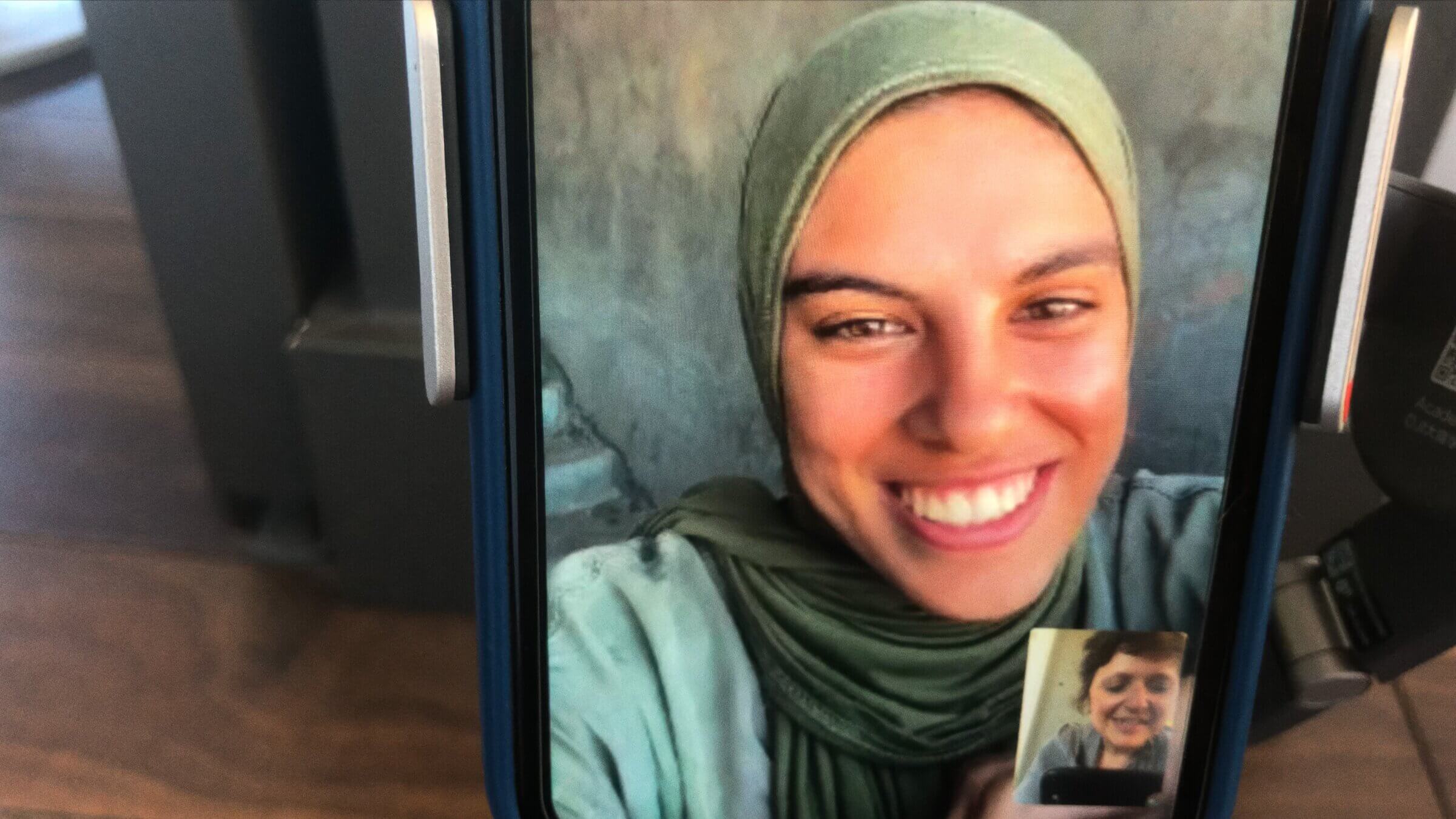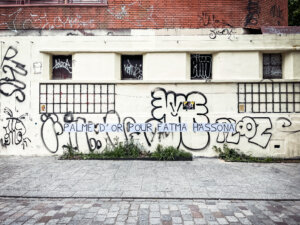In the last months of her life, this Palestinian photojournalist captured resilience in Gaza
‘Put Your Soul On Your Hand and Walk’ documents Fatma Hassona’s fight to hold onto hope

‘Put Your Soul On Your Hand and Walk’ follows video conversations between Fatma Hassona and filmmaker Sepideh Farsi. Courtesy of Kino Lorber
Nine months before she was killed by an Israeli airstrike, Palestinian photojournalist Fatma Hassona started quoting Shawshank Redemption.
“Hope is a dangerous thing,” she told Iranian filmmaker Sepideh Farsi over a WhatsApp video call.
Farsi and Hassona began talking in early 2024, after Farsi’s plans to make a documentary in Rafah were upended due to the closing of the border. She had pivoted to filming Palestinian refugees living in Cairo when she was connected to Hassona, who lived in northeastern Gaza. For a year, the two women chatted via text and video call, Farsi tracking the destruction of Gaza from afar, mostly in Paris, through Hassona’s experiences. Their conversations ended suddenly on April 16, 2025, when a bomb killed Hassona and several of her family members.

Despite the distance between the filmmaker and her subject, Put Your Soul On Your Hand and Walk, which premiered at the Cannes Film Festival in May, provides an intimate look at what it’s like to live in a city under siege. The calls are often staticky or disrupted due to electrical outages. Planes and bombs can be heard in the background. The women discuss Hassona’s food rations and how her brothers take turns walking to collect water.
What is most striking is the way in which the war’s destruction is incorporated into everyday life. Footage of the video calls is interspersed with photos Hassona took throughout the war. Amid rubble, the people of Gaza continue to gather and socialize outside, kids play in the street, people ride their bikes. Children hang out in the remains of demolished buildings like it’s a playground.
When a bomb strikes Hassona’s neighbors, Farsi laments, “That’s very bad.” But Hassona shrugs it off. “That’s normal,” she says. When Hassona hears of an Israeli military invasion in nearby areas, she describes it as the soldiers “playing.” She and her friends have dealt with these attacks since childhood, she explains to Farsi. Their ability to withstand them is a source of pride.
But as the months go on, Hassona’s resolve begins to deteriorate. In May 2024, Hassona tells Farsi, “I’m not afraid of anything,” despite having lost 13 family members, but by October, she has grown depressed. Early on she tells Farsi she cannot leave Gaza because she must help rebuild it when the war is done. Five months later, she describes her home as a prison.
While Hassona is confined in her birthplace, Farsi was exiled from her homeland of Iran in 2009 for making films critical of the government, including the documentary Tehran Without Permission.
Farsi’s experience of surviving an oppressive situation may explain why she takes issue with Hassona’s seemingly casual acceptance of her life in Gaza. On more than one occasion, the two argue — Farsi expresses her frustration that Hassona is not more upset, while Hassona insists that everything is in Allah’s hands. This relentless faith seems to mask one of the most stark consequences of the occupation of Gaza: the dehumanization of its residents. The constant violence and discriminatory treatment has led some to believe they shouldn’t expect to be treated any differently. When Hassona wishes that she had just been born a normal person, Farsi reminds her: “You are a normal person. The situation is not normal.”
One day after the Cannes Film Festival announced that they would be premiering the film, Hassona was killed along with other members of her family, including her brothers. There has been speculation online that the attack was a response to Cannes’ announcement. The IDF has claimed that the bombardment was a targeted effort to eliminate a member of Hamas.
After spending nearly two hours immersed in Farsi’s conversations with Hassona, the abrupt ending of the film — a couple of sentences about her death written onto the screen — is jarring. But it’s a fitting end, a harsh reminder of how quickly Hassona’s life was cut short.
The documentary Put Your Soul On Your Hand and Walk will be screening at the New York Film festival Oct. 4, 5 and 13. It opens theatrically Nov. 5.

















